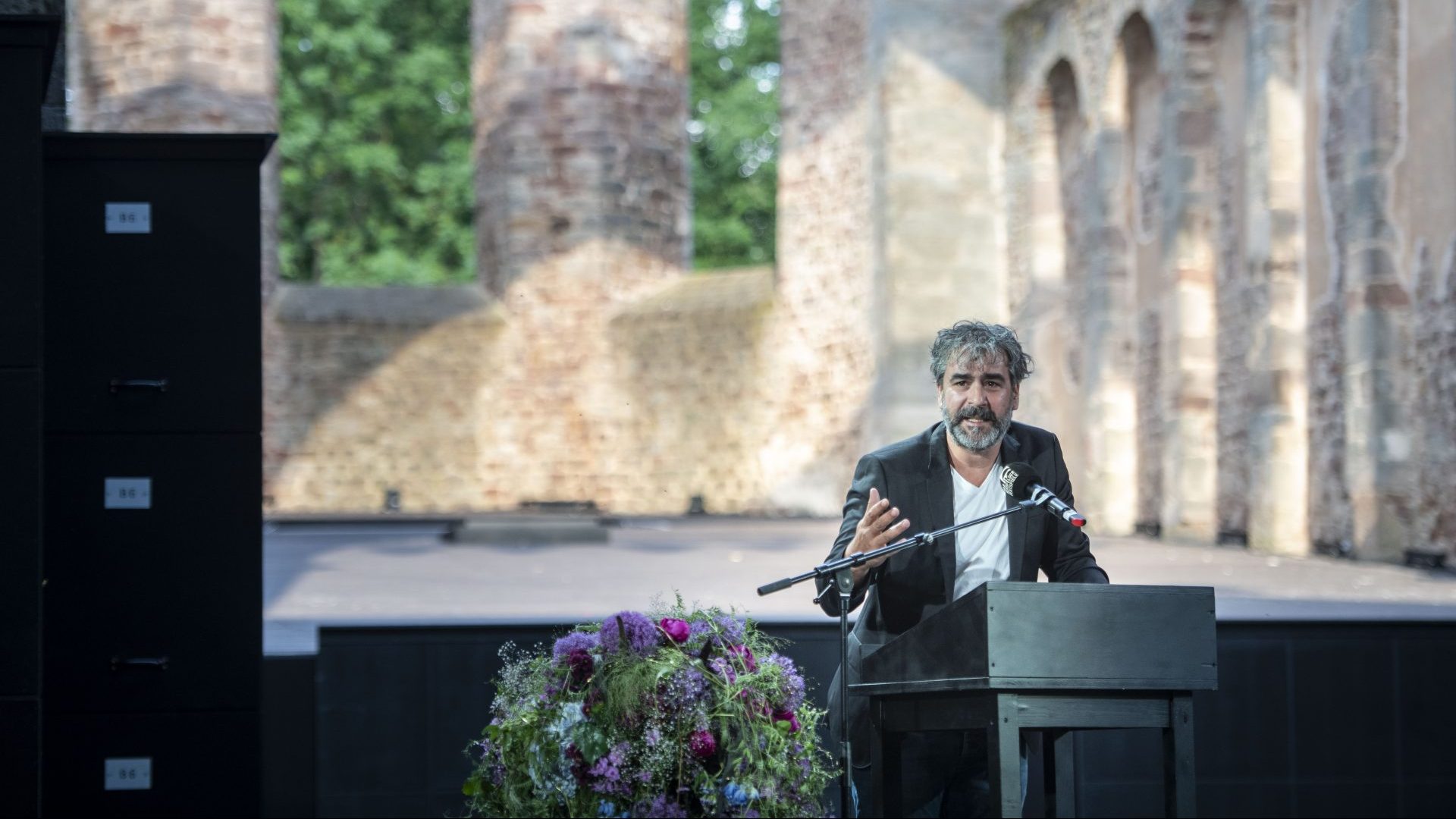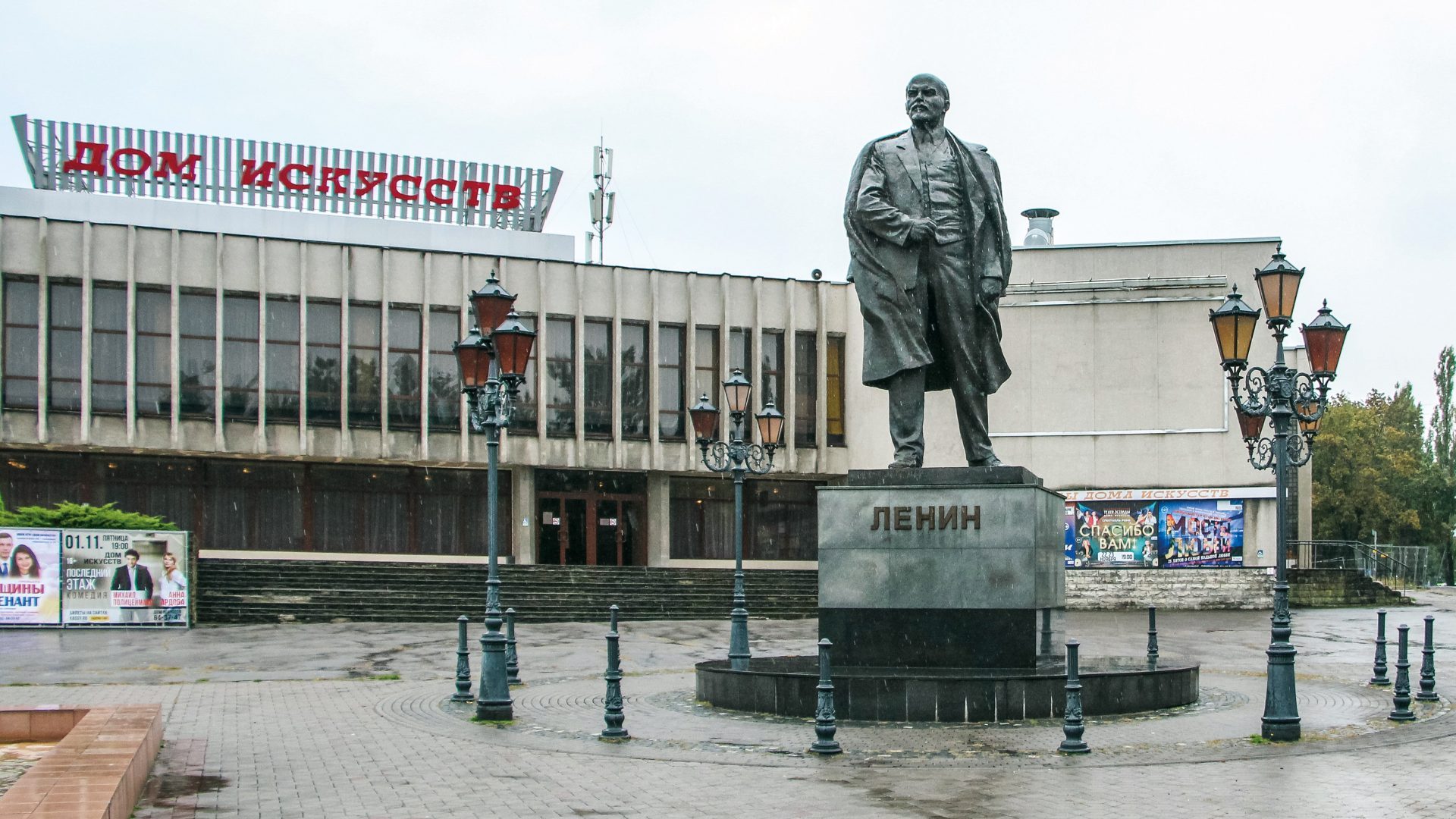With the Depp v Heard trial entering the final stages, it is time for a guilty plea: I have become addicted to courtroom TV from Fairfax County, Virginia. I was convinced no one could outperform this epic romance-gone-toxic drama. I was wrong.
Gotha, a small town in Thuringia, recently became the site of a Hollywood-style drama. Without the glamour, granted, but with an unhealthy amount
of teutonic Vereinsmeierei (Jobsworth sticklerdom) instead.
The club in question is the German section of PEN International (an organisation for poets, playwrights, editors, essayists and novelists). German PEN has become our newspaper culture sections’ favourite object of mockery after driving out their president Deniz Yücel during its annual conference. His departing words were: “I don’t want to be the president of a Bratwurst-Bude.” It means a sausage stand.
A bit of background for those (like me) who don’t know much about PEN. It was founded in 1921 by the novelist Catherine Amy Dawson Scott, with the likes of Vera Brittain, Joseph Conrad and EM Foster as founding members.
The German section was set up in 1924 after Nobel laureate John Galsworthy, then-president of English PEN, gallantly overlooked that some of its founding members had all been enthusiasts of the first world war. Since then, German PEN has had several prominent members in its ranks: Alfred Kerr, Erich Kästner, Heinrich Böll, Günter Grass and more recently Eva Menasse, Daniel Kehlmann and Juli Zeh.
Throughout its 100 years of existence, PEN has been at the forefront of the fight for human rights and freedom of expression, campaigning for writers at risk.
One such writer is Deniz Yücel, born to Turkish parents in Germany. His career took him from small left-wing newspapers to liberal-conservative Die Welt – and then to prison.
Yücel (full disclosure: he is a friend of mine) is outspoken, witty, fearless, sharp-penned (at times too sharp) and thus excels at making enemies.
One enemy hit back: Turkey’s president Recep Tayyib Erdoğan wrongfully jailed Deniz for a year until 2018, accusing him of terrorist propaganda (his crime: interviewing a leader of PKK, the militant Kurdistan Workers’ Party).
After his release, Yücel wrote about the traumatising experience and when PEN Zentrum Deutschland elected him as president in late 2021, it seemed the obvious choice. Upon his election, he was congratulated with the words: “It is nice that the Gastarbeiter (guestworkers) have made their way into PEN.” But Deniz shook off this slur and went to work, well trained in empathy for those who are persecuted and well connected among the German administration. At least one foreign writer owes his release from prison to his efforts.
Deniz promoted German PEN but also ruffled feathers, or rather quills: change was not welcomed by a significant number of the members and executives.
What they liked even less was that the president of the freedom-for-expression club dared to express himself freely. In March, Deniz Yücel had called for a no-fly zone over Ukraine, guarded by Nato.
War broke out at PEN: Five former presidents asked for his resignation. He was accused of bullying. But his supporters stood by him. A collision course.
The collision occurred in Gotha. The attempt to hold a dignity-saving general meeting was sabotaged by the anti-Yücel wing – sneering and booing at him from the start, filling the venue with scornful laughter and deriding remarks. He was re-elected, but only just, and thus decided to call it a day.
Commentators noted tears, sweat and many trashy, farcical performances. Writer Daniel Kehlmann even detected a whiff of Brexit in the air. If this is
Germany’s intellectual literary elite, I’d rather do without. Luckily it isn’t.
But sadly PEN Germany is dominated by a group of petty-minded, parochial
panjandrums whose names are mostly unknown (and who need PEN as proof of their self-importance).
There is another suspicion: some attendees continuously mispronounced Deniz Yücel’s name, one member had previously attributed his “aggressive
behaviour” to his Turkish roots – suggesting that a Deutsch-Türke is only
tolerated as long as he behaves. Which Deniz, refreshingly, doesn’t do.
Award-winning writer Friedrich Christian Delius is one of many members
to have left PEN in Deniz’s wake. “Never”, he wrote in FAZ newspaper, “had I
thought that PEN could sink so low as to publicly humiliate a brave and astute man like Deniz Yücel so that this candid president – whatever he may have said to the odd Kleingeists (small minds) – had no option but to resign and leave.”
Basically, Deniz made only one mistake: to call PEN Germany a band of
sausage-mongers. This was an insult – to the sausages.




